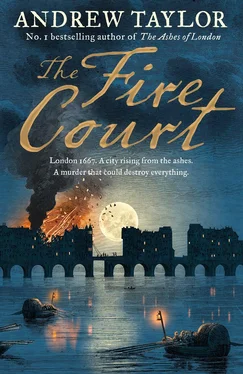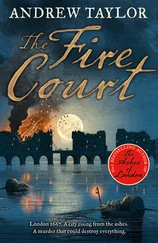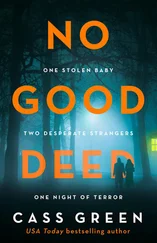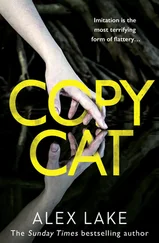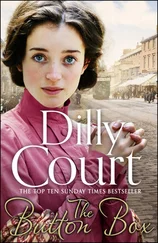Published by HarperCollins Publishers Ltd
1 London Bridge Street
London SE1 9GF
www.harpercollins.co.uk
First published in Great Britain by HarperCollins Publishers 2018
Copyright © Andrew Taylor 2018
Cover design by Dominic Forbes © HarperCollins Publishers Ltd 2018
Cover illustration Old London Bridge (engraving), Jongh, Claude de (fl.1610-1663) / Private Collection © Look and Learn/ Illustrated Papers Collection/ Bridgeman Images
Andrew Taylor asserts the moral right to be identified as the author of this work.
Prelims show ‘A map of the area of London affected by the Great Fire of London in 1666’ © The British Library
A catalogue copy of this book is available from the British Library.
This novel is entirely a work of fiction. The names, characters and incidents portrayed in it are the work of the author’s imagination. Any resemblance to actual persons, living or dead, events or localities is entirely coincidental.
All rights reserved under International and Pan-American Copyright Conventions. By payment of the required fees, you have been granted the non-exclusive, non-transferable right to access and read the text of this e-book on screen. No part of this text may be reproduced, transmitted, down-loaded, decompiled, reverse engineered, or stored in or introduced into any information storage and retrieval system, in any form or by any means, whether electronic or mechanical, now known or hereinafter invented, without the express written permission of HarperCollins.
Source ISBN: 9780008119133
Ebook Edition © April 2018 ISBN: 9780008119126
Version: 2018-01-26
For Caroline
Table of Contents
Cover
Title Page
Copyright
Dedication
Map
The People
Chapter One
Chapter Two
Chapter Three
Chapter Four
Chapter Five
Chapter Six
Chapter Seven
Chapter Eight
Chapter Nine
Chapter Ten
Chapter Eleven
Chapter Twelve
Chapter Thirteen
Chapter Fourteen
Chapter Fifteen
Chapter Sixteen
Chapter Seventeen
Chapter Eighteen
Chapter Nineteen
Chapter Twenty
Chapter Twenty-One
Chapter Twenty-Two
Chapter Twenty-Three
Chapter Twenty-Four
Chapter Twenty-Five
Chapter Twenty-Six
Chapter Twenty-Seven
Chapter Twenty-Eight
Chapter Twenty-Nine
Chapter Thirty
Chapter Thirty-One
Chapter Thirty-Two
Chapter Thirty-Three
Chapter Thirty-Four
Chapter Thirty-Five
Chapter Thirty-Six
Chapter Thirty-Seven
Chapter Thirty-Eight
Chapter Thirty-Nine
Chapter Forty
Chapter Forty-One
Chapter Forty-Two
Chapter Forty-Three
Chapter Forty-Four
Chapter Forty-Five
Chapter Forty-Six
Chapter Forty-Seven
Chapter Forty-Eight
Chapter Forty-Nine
Chapter Fifty
Chapter Fifty-One
Chapter Fifty-Two
Chapter Fifty-Three
Keep Reading …
About the Author
By the Same Author
About the Publisher
THE PEOPLE
Infirmary Close, The Savoy
James Marwood, clerk to Joseph Williamson, and to the Board of Red Cloth
Nathaniel Marwood, his father, widowed husband of Rachel; formerly a printer
Margaret and Sam Witherdine, their servants
The Drawing Office, Henrietta Street
Simon Hakesby, surveyor and architect
‘Jane Hakesby’, his maid, formerly known as Catherine Lovett
Brennan, his draughtsman
Clifford’s Inn and the Fire Court
Lucius Gromwell, antiquary
Theophilus Chelling, clerk to the Fire Court
Sir Thomas Twisden, a judge at the Fire Court
Miriam, a servant at Clifford’s Inn
Sir Philip Limbury
Jemima, Lady Limbury, daughter of Sir George Syre
Mary, her maid
Richard, Sir Philip’s manservant; also known as Sourface
Hester, a maid
Joseph Williamson, Under-Secretary of State to Lord Arlington
William Chiffinch, Keeper of the King’s Private Closet
Roger Poulton, retired cloth merchant; late of Dragon Yard
Elizabeth Lee, his housekeeper
Celia Hampney, his widowed niece
Tabitha, Mistress Hampney’s maid
Mistress Grove, of Lincoln’s Inn Fields; who lets lodgings to Mistress Hampney
Barty, a crossing-sweeper in Fleet Street, by Temple Bar
Rachel. There you are.
She hesitated in the doorway that led from the Savoy Stairs and the river. She wore a long blue cloak over a grey dress he did not recognize. In her hand was a covered basket. She walked across the garden to the archway in the opposite corner. Her pattens clacked on the flagged path.
That’s my Rachel, he thought. Always busy. But why did she not greet him?
You are like the river, my love, he had told her once, always moving and always the same.
They had been sitting by the Thames in Barnes Wood. She had let down her hair, which was brown but shot through with golden threads that glowed in the sunlight.
She had looked like a whore, with her loose, glorious hair.
He felt a pang of repulsion. Then he rallied. A woman’s hair encouraged lustful thoughts, he argued with himself, but it could not be sinful when the woman was your wife, joined to you in the sight of God, flesh of your flesh, bone of your bone.
Now the garden was empty. There was no reason why he should not go after her. Indeed, it was his duty. Was not woman the weaker vessel?
He used his stick as a prop to help him rise. He was still hale and hearty, thank God, but his limbs grew stiff if he did not move them for a while.
He walked towards the archway. The path beyond made a turn to the right, rounding the corner of one of the old hospital buildings of the Savoy. He glimpsed Rachel ahead, passing through the gate that led up to the Strand. She paused to look at something – a piece of paper? – in her hand. Then she was gone.
She must be going shopping. A harmless pleasure, but only as long as it did not encourage vanity, a woman’s besetting sin. Women were weak, women were sinful, which was why God had placed men to watch over them and to correct them when they erred.
The porter in his lodge took no notice of him. A cobbled path led up to the south side of the Strand. The traffic roared and clattered along the roadway.
He looked towards Charing Cross, thinking that the shops of the New Exchange would have drawn her like a moth to a blaze of candles. No sign of her. Could he have lost her already? He looked the other way, and there she was, walking towards the ruins of the City.
He waved his stick. ‘Rachel,’ he cried. ‘Come here.’
The racket and clatter of the Strand drowned his words.
He followed her, the stiffness dropping from his limbs, his legs gathering strength and momentum with the exercise. On and on she walked, past Somerset House and Arundel House, past St Clement’s and under Temple Bar into Fleet Street and the Liberties of the City.
He kept his eyes fixed on the cloak, and the rhythm of his walking lulled his mind until he almost forgot why he was here. By the Temple, Rachel hesitated, turning towards the roadway with its sluggish currents of vehicles and animals. She looked down at the paper in her hand. A painted coach lumbered to a halt on the opposite side of the road. At that moment, a brewer’s dray, coming from the other direction and laden with barrels, drew up beside it. Between them, they blocked the street.
Читать дальше
